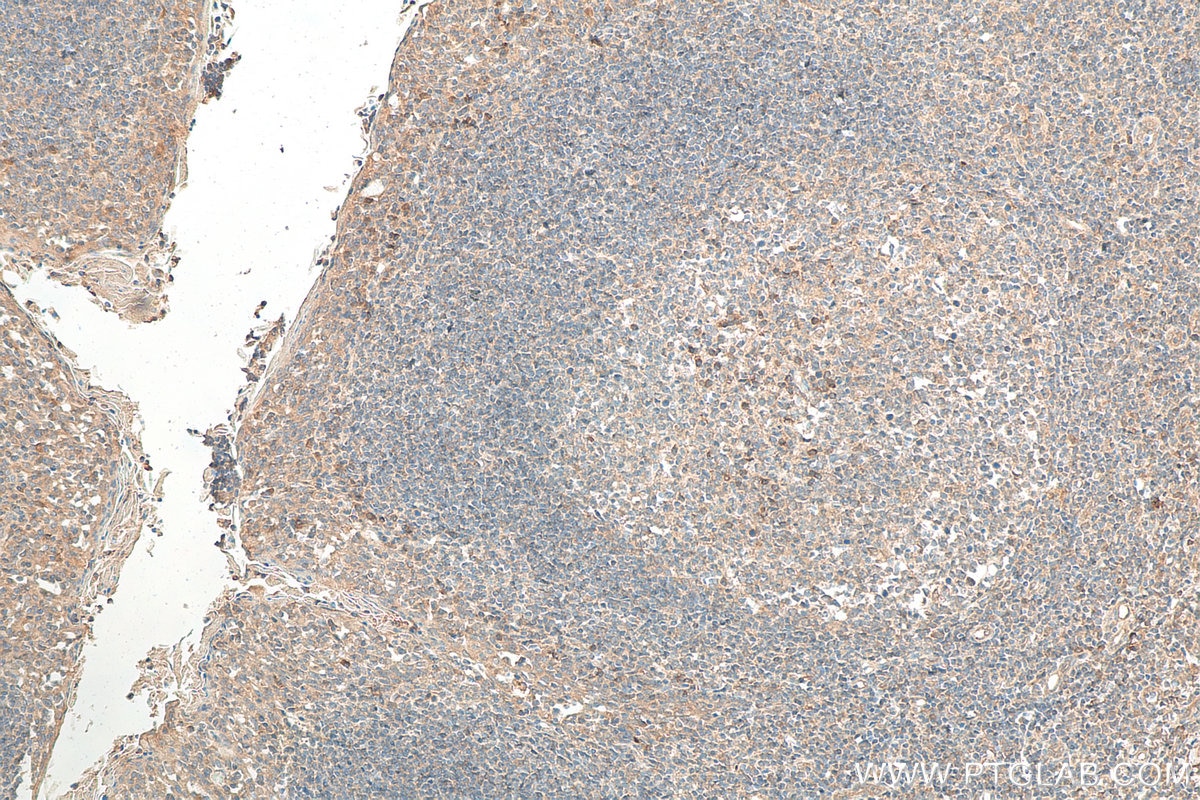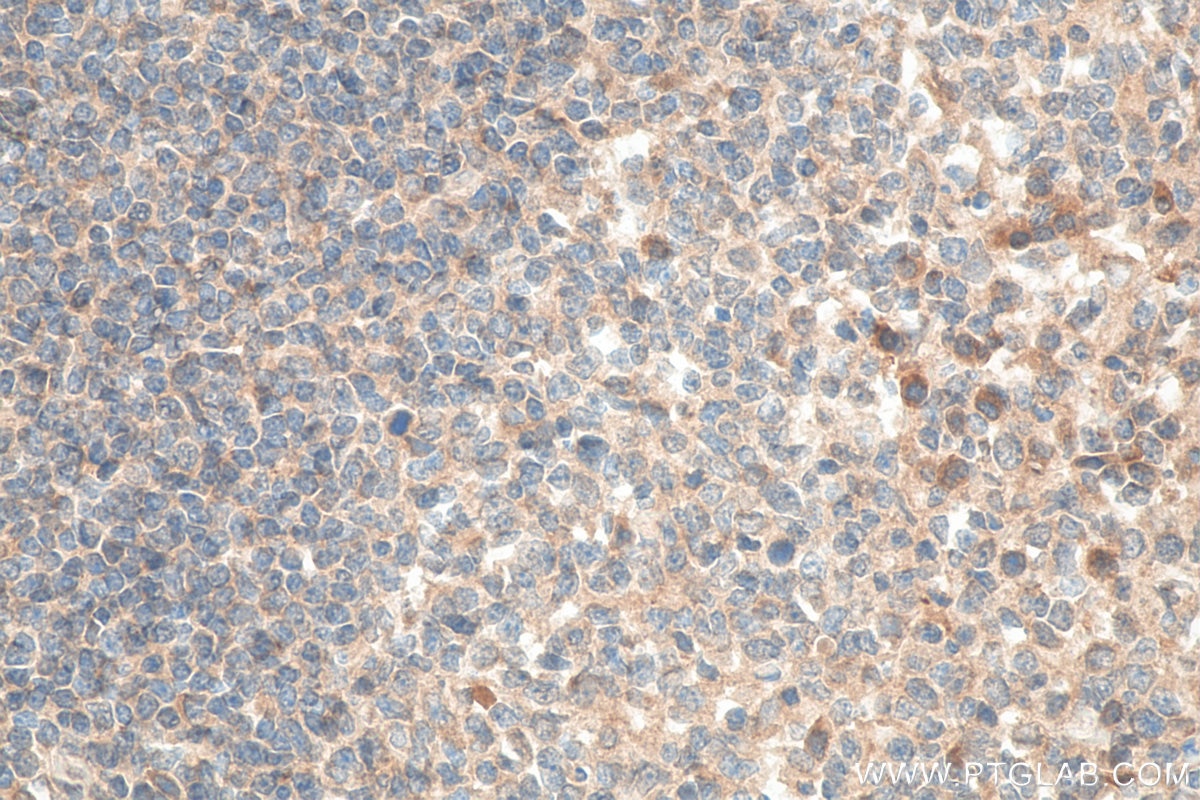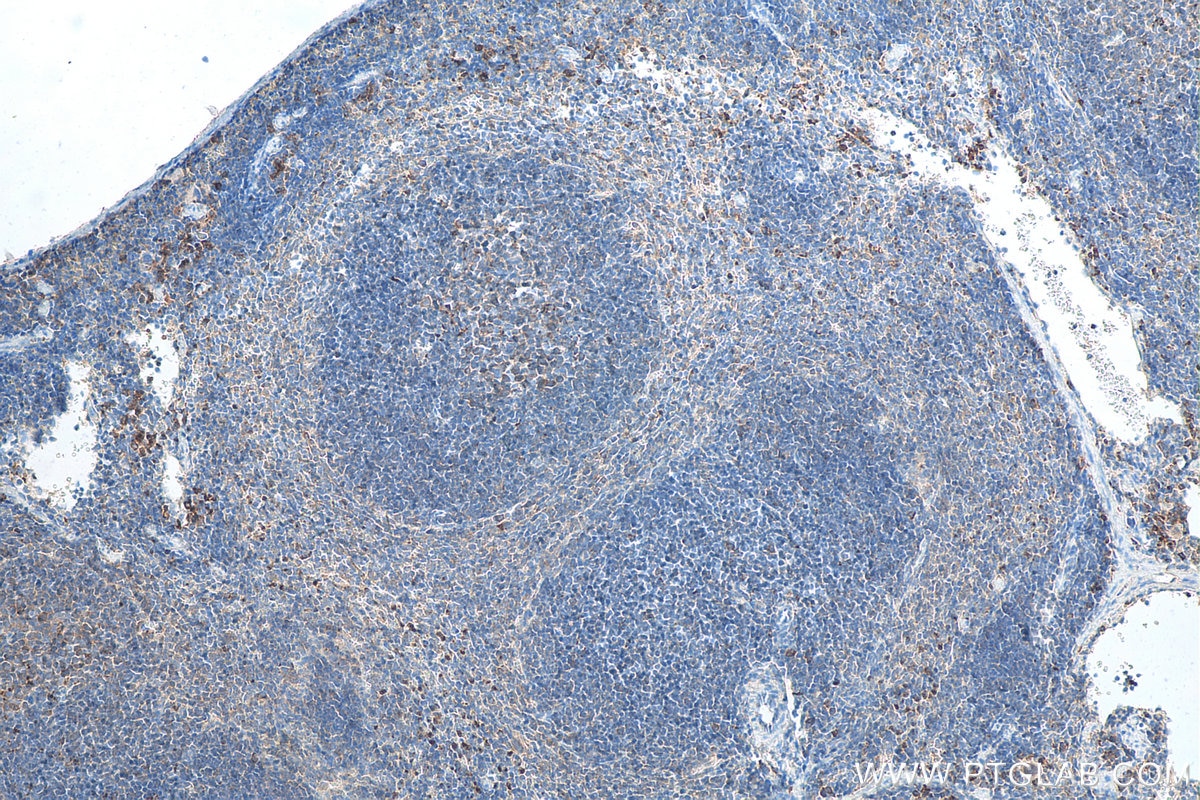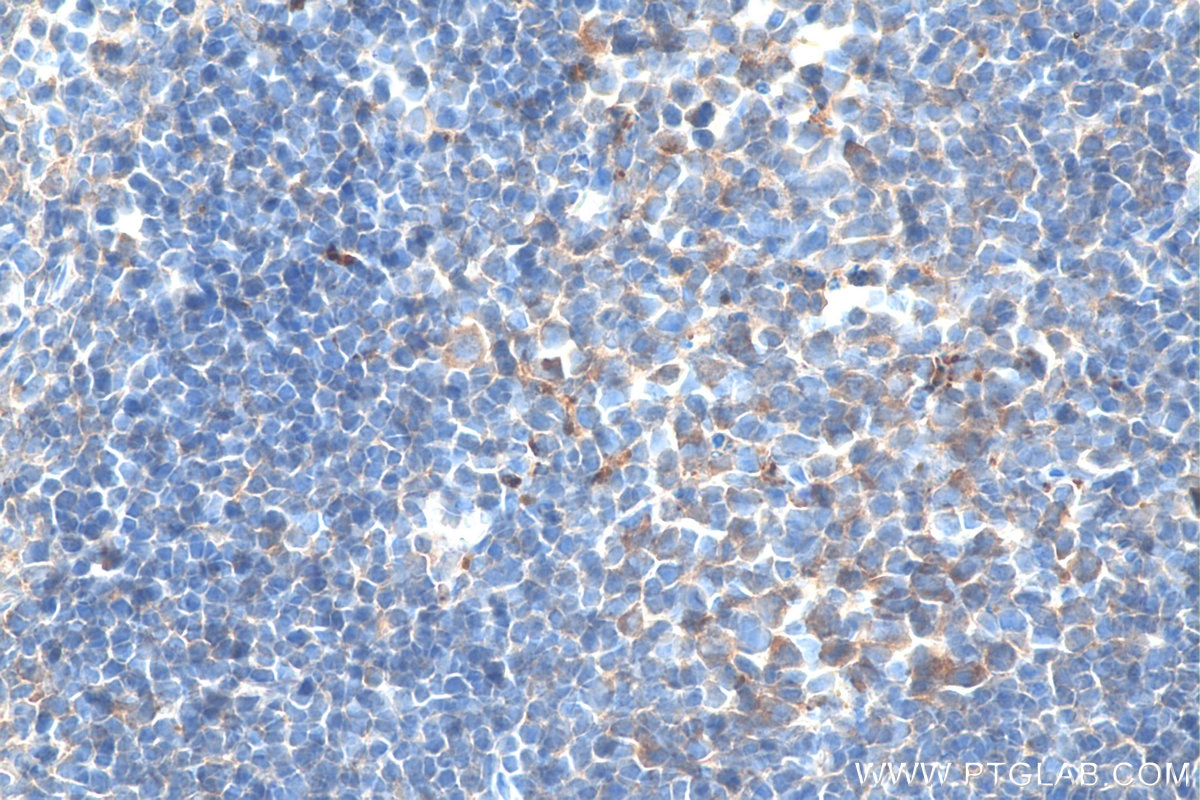Validation Data Gallery
Tested Applications
| Positive WB detected in | HeLa cells |
| Positive IHC detected in | human tonsillitis tissue, mouse spleen tissue Note: suggested antigen retrieval with TE buffer pH 9.0; (*) Alternatively, antigen retrieval may be performed with citrate buffer pH 6.0 |
Recommended dilution
| Application | Dilution |
|---|---|
| Western Blot (WB) | WB : 1:500-1:2000 |
| Immunohistochemistry (IHC) | IHC : 1:50-1:500 |
| It is recommended that this reagent should be titrated in each testing system to obtain optimal results. | |
| Sample-dependent, Check data in validation data gallery. | |
Published Applications
| KD/KO | See 2 publications below |
| WB | See 51 publications below |
| IHC | See 8 publications below |
| IF | See 14 publications below |
| IP | See 1 publications below |
| CoIP | See 1 publications below |
Product Information
11073-2-AP targets CXCR4 in WB, IHC, IF, IP, CoIP, ELISA applications and shows reactivity with human, mouse samples.
| Tested Reactivity | human, mouse |
| Cited Reactivity | human, mouse, rat |
| Host / Isotype | Rabbit / IgG |
| Class | Polyclonal |
| Type | Antibody |
| Immunogen |
CatNo: Ag1528 Product name: Recombinant human CXCR4 protein Source: e coli.-derived, PGEX-4T Tag: GST Domain: 192-352 aa of BC020968 Sequence: NDLWVVVFQFQHIMVGLILPGIVILSCYCIIISKLSHSKGHQKRKALKTTVILILAFFACWLPYYIGISIDSFILLEIIKQGCEFENTVHKWISITEALAFFHCCLNPILYAFLGAKFKTSAQHALTSVSRGSSLKILSKGKRGGHSSVSTESESSSFHSS 相同性解析による交差性が予測される生物種 |
| Full Name | chemokine (C-X-C motif) receptor 4 |
| Calculated molecular weight | 352 aa, 40 kDa |
| Observed molecular weight | 60-70 kDa |
| GenBank accession number | BC020968 |
| Gene Symbol | CXCR4 |
| Gene ID (NCBI) | 7852 |
| RRID | AB_2091813 |
| Conjugate | Unconjugated |
| Form | |
| Form | Liquid |
| Purification Method | Antigen affinity purification |
| UNIPROT ID | P61073 |
| Storage Buffer | PBS with 0.02% sodium azide and 50% glycerol{{ptg:BufferTemp}}7.3 |
| Storage Conditions | Store at -20°C. Stable for one year after shipment. Aliquoting is unnecessary for -20oC storage. |
Background Information
C-X-C chemokine receptor type 4 (CXCR4) is a widely expressed G protein-coupled seven-transmembrane receptor. CXCL12/SDF-1 is the biological ligand for CXCR4. The binding of CXCL12 to CXCR4 induces intracellular signaling through several divergent pathways initiating signals related to chemotaxis, cell survival and/or proliferation, increase in intracellular calcium, and gene transcription (PMID: 20484021). CXCR4 also functions as a coreceptor for HIV-1 entry (PMID: 9427609). CXCR4 has a calculated molecular weight of 40 kDa. In addition to the predicted species of 45-47 kDa for glycosylated CXCR4 monomers, due to ubiquitination, dimeration, and different degrees of glycosylation, additional species can also exist and have been reported in some research, including 67 kDa (PMID: 23917520), 55, 67, 87 kDa (PMID: 20028517), 80 kDa (PMID: 10506573), 47, 50, 62, and 98 kDa (PMID: 16204649).
Publications
| Species | Application | Title |
|---|---|---|
Nat Commun Low chorionic villous succinate accumulation associates with recurrent spontaneous abortion risk. | ||
Nat Commun N6-methyladenosine modification of circNSUN2 facilitates cytoplasmic export and stabilizes HMGA2 to promote colorectal liver metastasis. | ||
Acta Biomater Sodium alginate/collagen/stromal cell-derived factor-1 neural scaffold loaded with BMSCs promotes neurological function recovery after traumatic brain injury. | ||
Theranostics Bioengineering CXCR4-overexpressing cell membrane functionalized ROS-responsive nanotherapeutics for targeting cerebral ischemia-reperfusion injury. | ||
Biomater Sci The effects of Sr-incorporated micro/nano rough titanium surface on rBMSC migration and osteogenic differentiation for rapid osteointegration | ||
Brain Behav Immun Cerebral ischemia increases bone marrow CD4(+)CD25(+)FoxP3(+) regulatory T cells in mice via signals from sympathetic nervous system. |





